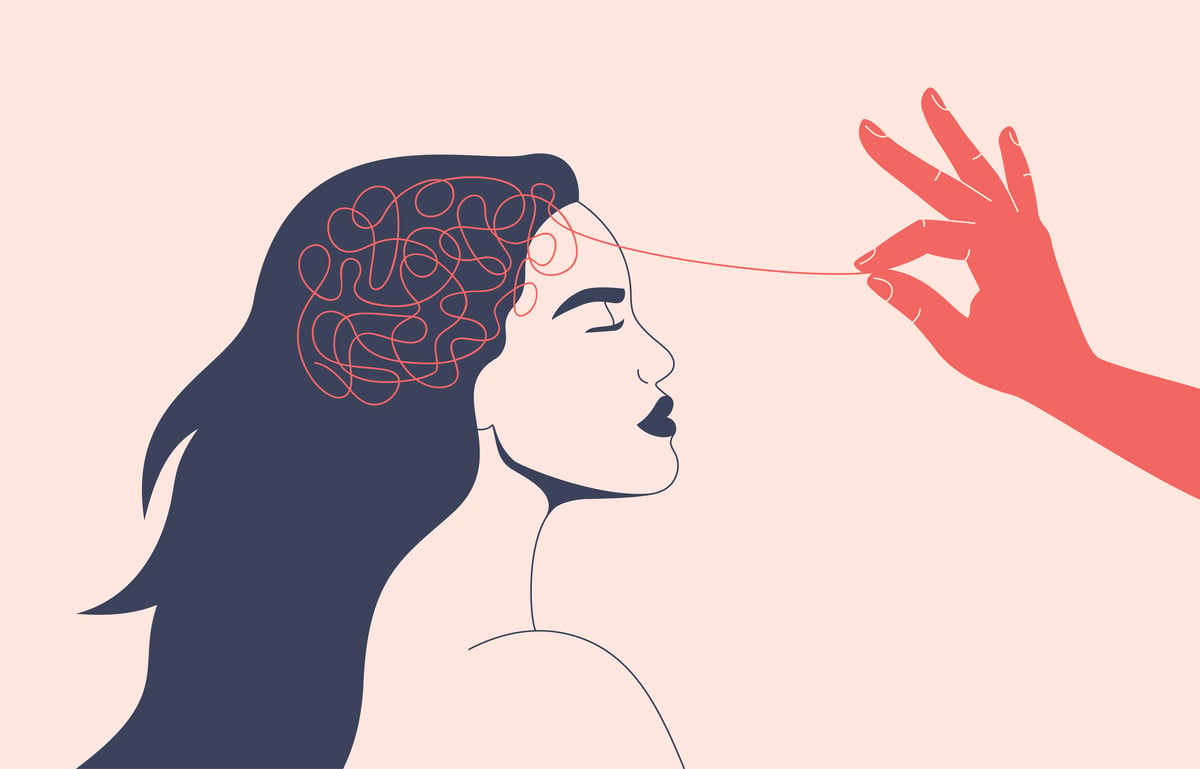
You know the feeling when you walk into a room to get something and completely... forget what you went in there to do? Or you're in the middle of telling a story and suddenly can't remember wtf you're talking about? Or when you just 👏 can't 👏 get 👏 that 👏 effing 👏 word?
These minor brain glitches (a.k.a 'cognitive lapse') can happen to anyone, and they're completely normal - so don't freak out. While they might feel 11/10 concerning (why can't I remember the name of that girl I've met five times 🙃), they don't necessarily mean you're experiencing memory loss or cognitive impairment.
More often than not, forgetfulness can be a result of things like psychological stress, distractions, multitasking, moods and anxiety - things we're all excelling at over the past year.
Watch: Here's exactly what my brain would say if it could text me. Post continues below.
However, it's important to note that symptoms like the worsening of memory, language and attention can also be contributed to things like early dementia and Alzheimer’s disease. And if this is the case, there are some sneaky signs you need to look out for and address in order to prevent further cognitive decline.
To find out more about memory loss and what signs you need to be aware of, we spoke to neurologist Dr Kate Ahmad from Northern Neuroscience and asked her everything we need to know.
